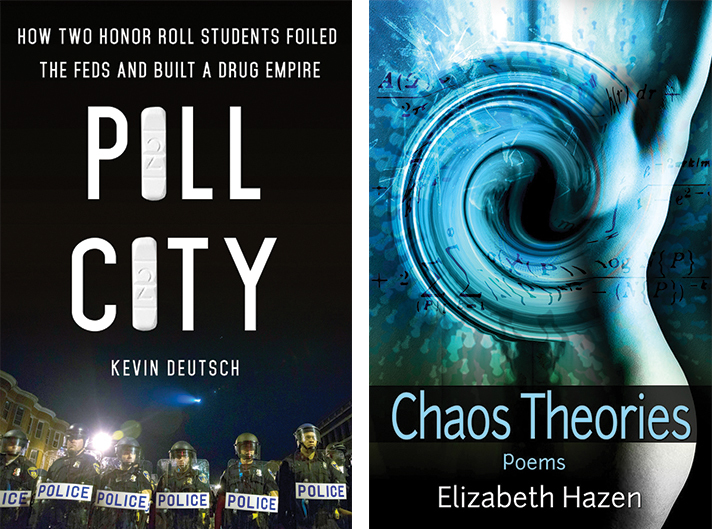Arts & Culture
Book Reviews: February 2017
The latest from Kevin Deutsch and Elizabeth Hazen.
Pill City
By Kevin Deutsch (St. Martin’s Press)
The narcotics trade has been a decades-long scourge on Baltimore’s streets, with overdose deaths and turf wars maintaining a continual presence. But, as Kevin Deutsch details, the epidemic reached new levels following the violence that erupted after the death of Freddie Gray, when two honor-roll teenagers from West Baltimore—in conjunction with a local gang—looted more than a million narcotic pills from pharmacies. Instead of selling on street corners, they built an Uber-like system, using location-based technology and encryption software to distribute along the East Coast. As the teens created scores of new addicts and left law enforcement scrambling, Deutsch—a veteran Newsday crime reporter—got to know the pair. His information is based on 300 interviews with the likes of gang members, social workers, and law enforcement officials, and, since some characters are still at large, he’s changed names and altered locations. It will be interesting to see Baltimore’s reaction to this deep dive into our drug culture, but his book is a reminder of just how serious, and often ignored, this problem is—and how tragic that bright, young people are caught in its web.
Chaos Theories
By Elizabeth Hazen (Alan Squire Publishing)
In her debut collection of poetry, Elizabeth Hazen takes us on a journey through life’s baffling, frustrating, unexplainable moments. As she searches for an understanding of how our best-laid plans can go astray and life can spiral out of control, she turns to scientific theories as a basis for dialogue and explanation. As she writes in “Final Theory,” “Scientists claim universal symmetry,/say a ‘theory of everything’ exists,/order, in spite of evidence, persists:/ . . . Prayer has symmetry, and funeral processions,/blood spatter, scattered ashes, a child’s weeping/ . . . his infinite silence, my unanswered questions.” Hazen—a graduate of The Writing Seminars at The Johns Hopkins University, whose work appeared in the anthology Best American Poetry 2013—has a way of uncovering universal feelings that resonate, even if we haven’t experienced her particular grief or confusion. Each dark, explorative verse seems to prove that science does not always provide consolation, and in the end, sometimes the beauty in life lies in the unknowing.
